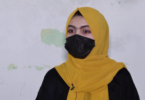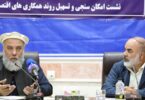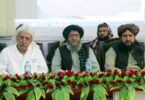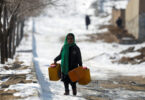KABUL (Agencies): The United Nations Development Program (UNDP) has announced the establishment of a Community Kitchen to create employment opportunities and generate income for women. UNDP emphasized through a message on its official social media platform X that women can enhance healthy meal options, support the local economy, and strengthen social connections through this initiative.
According to the United Nations Development Program, this collaborative kitchen ecosystem encompasses a network of social entrepreneurship through food preparation, animal husbandry, childcare services, flower shops, solar solutions, and management. Masouda, one of the women actively working in one of these kitchens, mentioned that by creating this kitchen, they can economically support themselves and their families. She expressed her satisfaction with the establishment of these kitchens for women in Afghanistan, emphasizing that it not only benefits her but also provides opportunities for other women in need.
This initiative stresses that this kitchen serves as a “powerful tool for empowering women,” and it continues to help women build self-confidence and become active agents of change in their communities through resource sharing and fostering entrepreneurial skills.
According to the United Nations Development Program (UNDP) report, the UNDP’s social kitchen ecosystem in the Bagrami region of Kabul has created 20 job opportunities, with 10 of them specifically designated for women, benefiting 300 families.
Previously, the United Nations Development Program (UNDP) office had stated that restrictions on women in Afghanistan had resulted in economic losses ranging from $600 million to $1 billion.
The situation, according to this organization, significantly worsened after August 2021, especially for women who now face severe limitations, being deprived of education and many job opportunities.
Kanni Wignaraja, the Assistant Secretary-General of the United Nations and Regional Director of the UNDP in Asia and the Pacific emphasized, “We focus on direct support for women-owned businesses, job creation, essential social services, renewable energy, and risk management to sustain local economies, ensure food and energy security, improve people’s welfare, and protect them from disasters.” This comes amid women’s exclusion from education and employment in government institutions, with more than one-third of women facing restrictions in private and international organizations.
However, Afghan authorities consider these restrictions temporary and emphasize their efforts to create opportunities for women within the framework of their interpretation of “Islamic law.”







